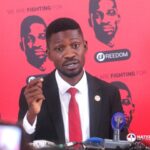President William Ruto has summoned an urgent crisis meeting of all members of his Kenya Kwanza coalition for Monday, June 10, in a bid to address the escalating political turbulence within the ruling party.
The move comes amid increasing internal strife and a brewing power struggle with his deputy, Rigathi Gachagua.
The crisis talks come on the heels of another crucial meeting scheduled for Saturday, June 8, where President Ruto will convene the United Democratic Alliance (UDA) National Executive Council (NEC).
This urgent NEC meeting aims to tackle the escalating rift between the President and his deputy, Gachagua, amid contentious grassroots election issues and a deeply polarising Finance Bill 2024.
These strategic gatherings come as the coalition faces multiple challenges, including a contentious Finance Bill 2024, internal rifts over grassroots elections, and a divisive cabinet stance on the ban of Muguka, a popular stimulant.
The President’s planned intervention follows his return from an overseas trip to Egypt, after a visit to South Korea.
The original meeting, intended for Friday, June 7, was postponed due to his travels. Now set for Monday, the State House meeting aims to quell the growing discontent within the coalition’s ranks.
Among the critical issues on the table is the polarising Finance Bill 2024. The bill has sparked significant debate and discontent among Kenya Kwanza legislators, who are set to cast their votes on the matter. This financial legislation is seen as a litmus test for Ruto’s leadership, as he attempts to galvanise support for measures that many Kenyans view unfavourably.
Adding to the turmoil is the simmering Cold War between President Ruto and Deputy President Gachagua. The tension primarily revolves around the forthcoming grassroots elections and the fierce battle for control within the UDA. The rift has manifested in a heated contest for the Nairobi county chairmanship, pitting Nairobi Governor Johnson Sakaja against Embakasi North MP James Gakuya.
This internal power struggle has become so intense that Ruto has been compelled to intervene directly. The Deputy President’s apparent support for Gakuya has further strained relations within the party, creating a visible divide that Ruto is eager to mend.
A recent meeting, convened by UDA National Elections Board Chairman Anthony Mwaura, failed to resolve the dispute over the election mode for the Nairobi elections. Gakuya advocates for traditional ballot papers, while Sakaja insists on digital voting. The deadlock has heightened tensions and underscores the deep-seated divisions within the party.
The upcoming NEC meeting on Saturday and the subsequent State House meeting on Monday are seen as critical junctures for the ruling coalition. Ruto’s ability to navigate these internal conflicts and unite his party will be crucial in maintaining his leadership and pushing through his legislative agenda.
Ruto’s strategy appears to focus on addressing the “ugly political wrangling” that threatens to fracture his party. By rallying MPs and top officials, he aims to forge a unified front ahead of the crucial vote on the Finance Bill. The meetings are also expected to address broader dissatisfaction and discontent among Kenya Kwanza elected leaders.
The political stakes are high, as Ruto seeks to consolidate his power within the UDA while also managing the broader coalition dynamics. The outcome of these meetings could significantly impact the stability of the ruling party and the government’s ability to implement its policies.
However, a State House insider, Dennis Itumbi has claimed the Saturday meeting is not a crisis meeting, but a scheduled meeting to review issues of the coalition.kenyan.co.ke
![]()
























